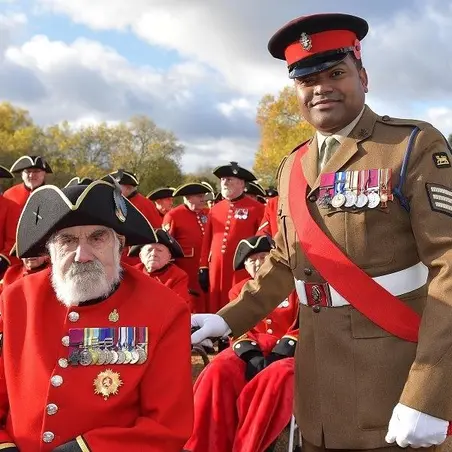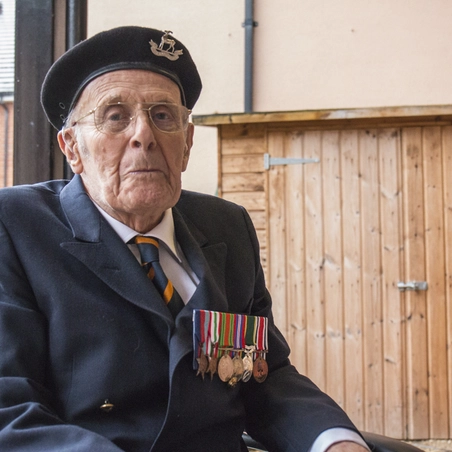For more than 20 years the story of Passchendaele survivor Arthur Roberts lay in the attic of a house in a quiet suburb of Glasgow.
But when a young couple bought the property in 2004, the letters, diaries, memoirs, drawings, photos and memorabilia were found – and the story preserved forever.
Arthur's diary
Born in Bristol in 1897, his father a ship’s steward from Trinidad, Arthur grew up in Glasgow an intelligent and confident lad. He played the bugle and lived in a tenement at Anderson on the banks of the Clyde. Arthur was an engineering apprentice at Harland and Wolff shipbuilders when he volunteered in February 1917, and he was just in time for Passchendaele.
On his first day of battle, hours before going over the top with two Battalion Royal Scots Fusiliers, Arthur realised he was about to experience a rite of passage.
“I wondered if I was in the thoughts of somebody at that precise moment. Then came a wave of pride. Here was I among men sharing the risks and uncertainties of being in the very front ranks of the empire, against its enemies. My patriotism was strong in my breast then and I began to dream of what might be. Would a great chance come my way, if so, would I make the best of it? Of course I would, I am a man now, a real man.”
Arthur’s battalion suffered more than 200 casualties on 31 July. Despite his eloquence, he was at a loss.
I saw sights that I never saw before or wish to see again.
"The fire swept down towards us like a hurricane..."
"To run was as bad as to stand. This is war; grim, death-stalking havoc… worse than all, the moans and shrieks of the unfortunate men. Some lay in that limp, unnatural, distorted attitude that denotes death.
"Some struggled madly, thoroughly unnerved but with their wounds unable to much more than crawl; the others worked their limbs feebly, like sleepy children, while their blood dyed their khaki with big black stains.”
Arthur's diary also revealed how lucky he had been.
“One fellow in front of me had his head blew off. The chap beside him was severely wounded, the chap next to me was wounded and one of the chaps behind me was killed and the fellow beside him was wounded. I completely escaped. That was everyone around me either killed or wounded. We lost about a dozen all told.”
After Passchendaele, Arthur came through the war unscathed; he was later restricted to non-combat jobs by a bad case of trench foot. He wrote:
“I have filled many breaches. I have been company-runner, batman, guide, dining-hall attendant, bugler, cycle-orderly, aircraft-gunner, hut-builder, stretcher-bearer and one or two other things. The strange thing is that according to my discharge, my military qualifications are ‘Nil’.”
Arthur returned to Glasgow where he worked all his life as a maritime and electrical engineer. Twice married, he played banjo in a British Legion dance band and died at a nursing home aged 84 in 1982.





